What Exactly Are AI Agents?
AI agents represent the next evolution in artificial intelligence—software entities that can perceive their environment, make decisions, and take actions to achieve specific goals with minimal human oversight. Unlike traditional AI systems that simply respond to prompts or generate content on command, agents actively engage with digital environments to complete entire workflows autonomously.
Core Characteristics of AI Agents in 2025
- Autonomous decision-making capabilities
- Ability to plan multi-step processes
- Environmental awareness and adaptation
- Tool utilization across various platforms
- Self-improvement through experience
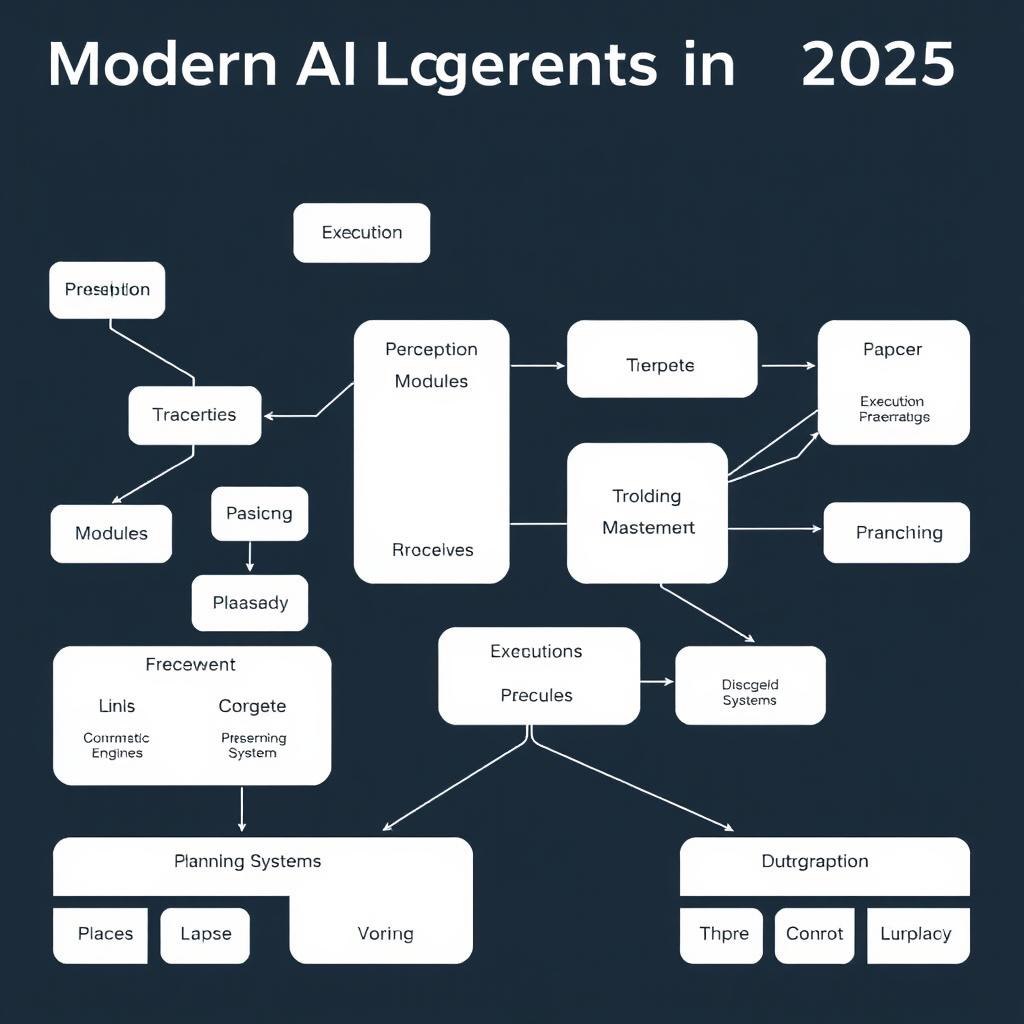
The distinction between chatbots and true AI agents is significant. While chatbots primarily engage in conversation and provide information, agents in 2025 can initiate actions, manipulate digital systems, and complete complex tasks end-to-end. They represent a shift from AI that merely assists to AI that accomplishes.
The Evolution of AI Agents: From Basic Automation to 2025
| Era | Capabilities | Examples | Limitations |
| Pre-2020 | Rule-based automation, simple task execution | IFTTT, Zapier, basic chatbots | No reasoning, fixed pathways, limited context |
| 2020-2022 | Natural language understanding, basic reasoning | Early GPT assistants, Alexa Skills | Limited autonomy, required explicit instructions |
| 2023-2024 | Tool use, multi-step planning, web browsing | ChatGPT with plugins, Claude with tool use | Inconsistent execution, limited self-correction |
| 2025 | Autonomous workflows, reasoning, self-improvement | OpenAI’s Operator, Google’s Agentspace, Manus | Still developing full reliability, ethical constraints |
The journey from basic automation tools to today’s sophisticated AI agents has been driven by breakthroughs in large language models (LLMs), reasoning capabilities, and tool integration frameworks. In 2025, we’re seeing the convergence of these technologies into cohesive agent systems that can understand context, plan complex actions, and execute them across digital environments.
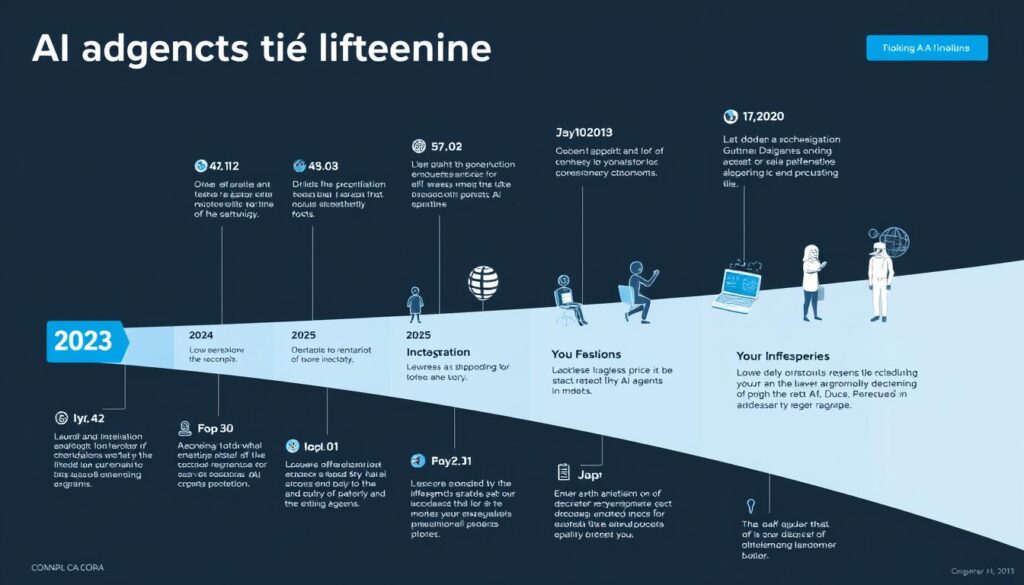
The AI Agent Revolution: Why 2025 Is the Turning Point
Several converging factors have made 2025 the pivotal year for AI agents to move beyond experimental technology into practical, widespread application:
Advanced Reasoning Models
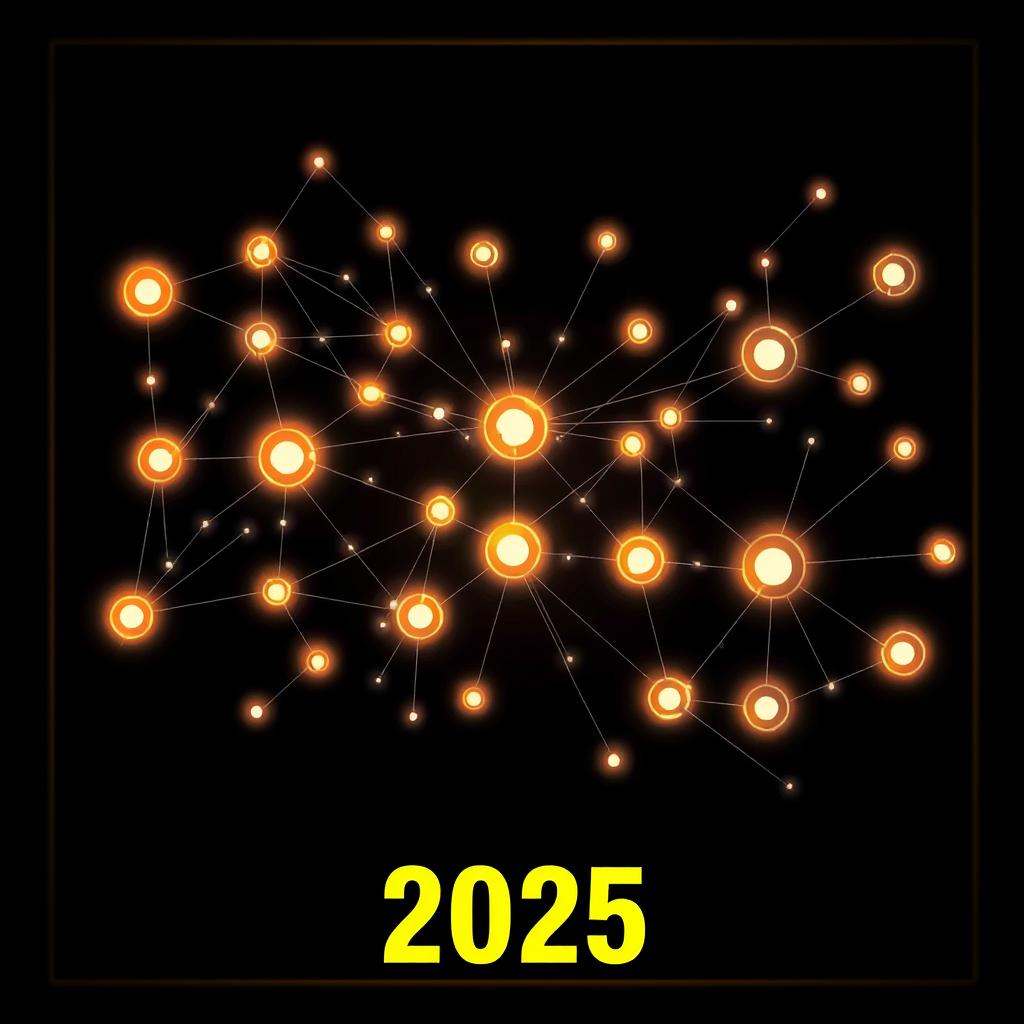
The development of specialized reasoning models like OpenAI’s o3-mini has enabled agents to break down complex problems, plan solutions step-by-step, and adapt when initial approaches fail—mimicking human problem-solving processes.
Tool Integration Frameworks
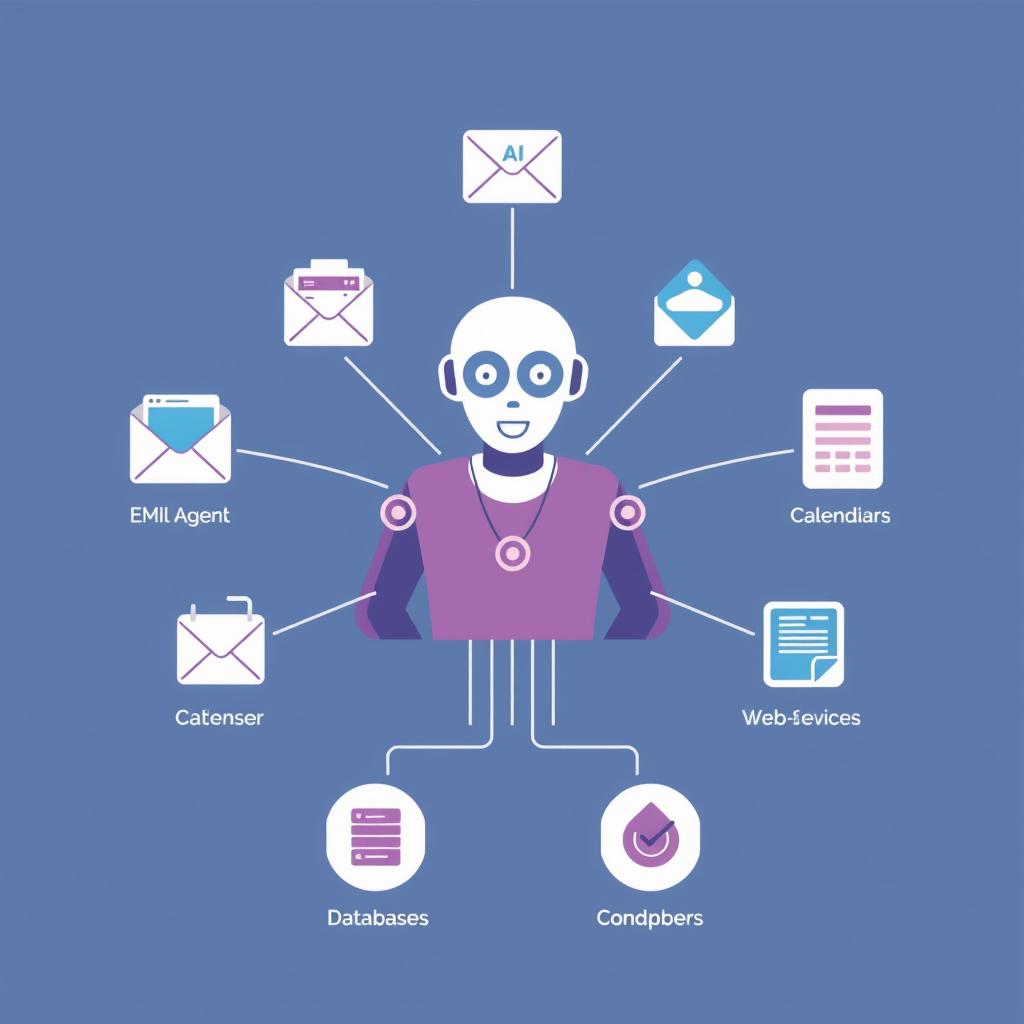
Standardized protocols for tool use and function calling have created ecosystems where agents can seamlessly interact with software, APIs, and web services—extending their capabilities far beyond what any single AI model could achieve alone.
Agent-to-Agent Communication
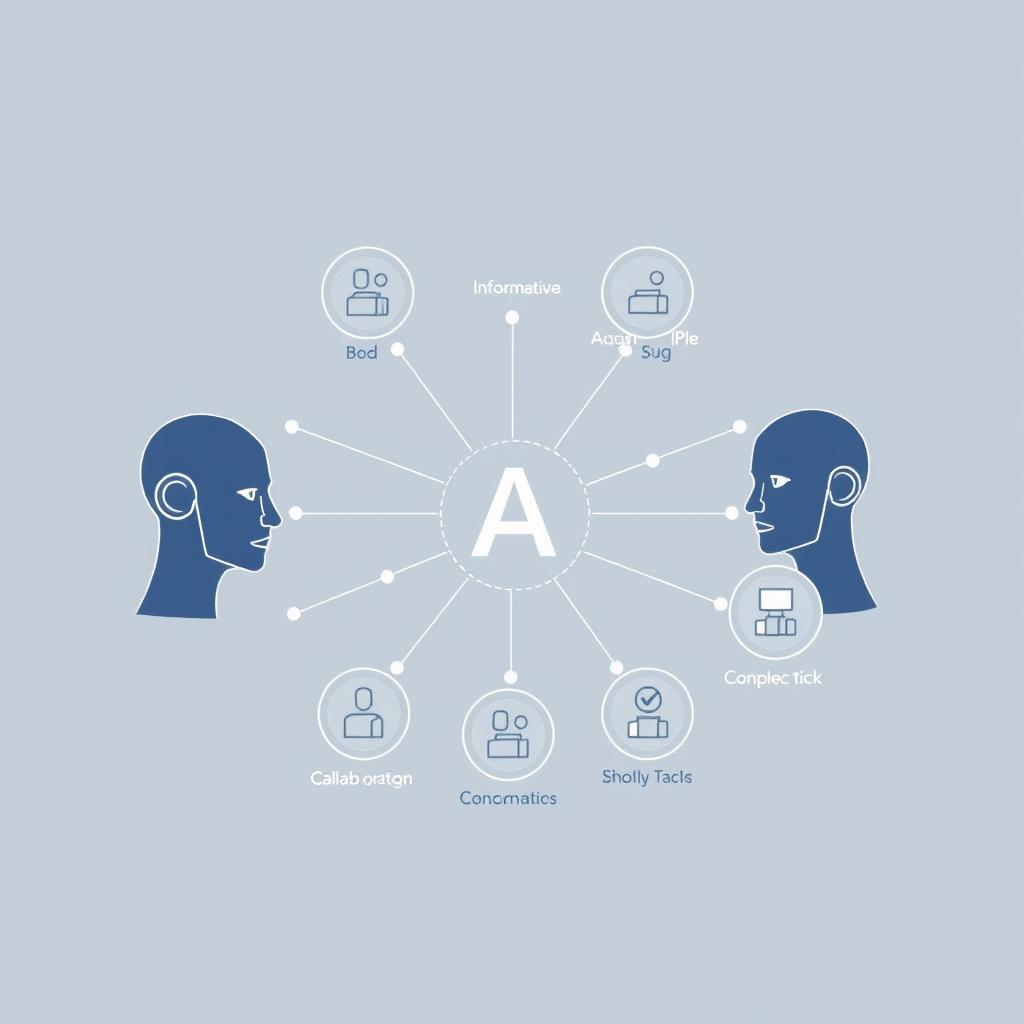
Protocols like Google’s Agent2Agent (A2A) enable specialized agents to collaborate, combining their unique capabilities to tackle complex workflows that require diverse expertise—similar to human teams working together.
These technological advancements have coincided with growing enterprise adoption, as businesses recognize the potential for AI agents to transform productivity, customer experience, and operational efficiency. The shift from experimental technology to practical business applications marks 2025 as the inflection point for AI agents.
AI Agents in Action: Real-World Use Cases in 2025
Across industries, AI agents are moving beyond theoretical potential to deliver tangible results:
Legal Industry Transformation
Legal AI startup Harvey has evolved from answering legal questions to handling entire legal workflows autonomously. Its platform now drafts documents, suggests revisions, automates negotiations, manages cases, and maintains client contact—tasks that traditionally required teams of junior lawyers. This shift from advisory AI to action-oriented agents is saving law firms thousands of billable hours while improving accuracy and consistency.
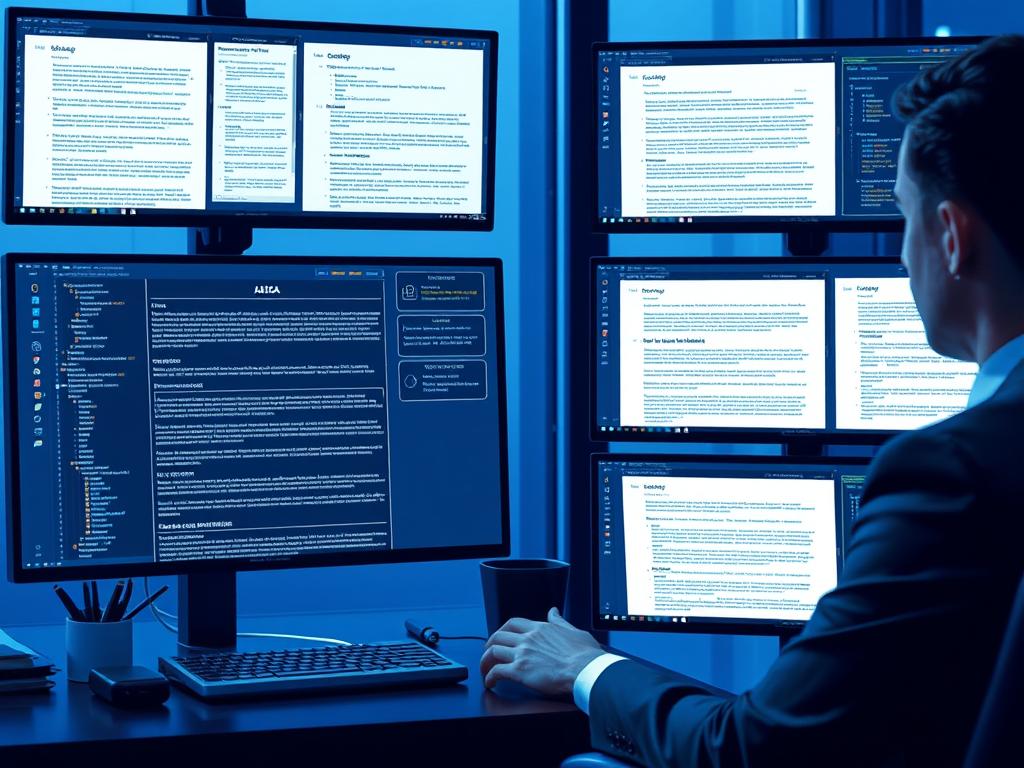
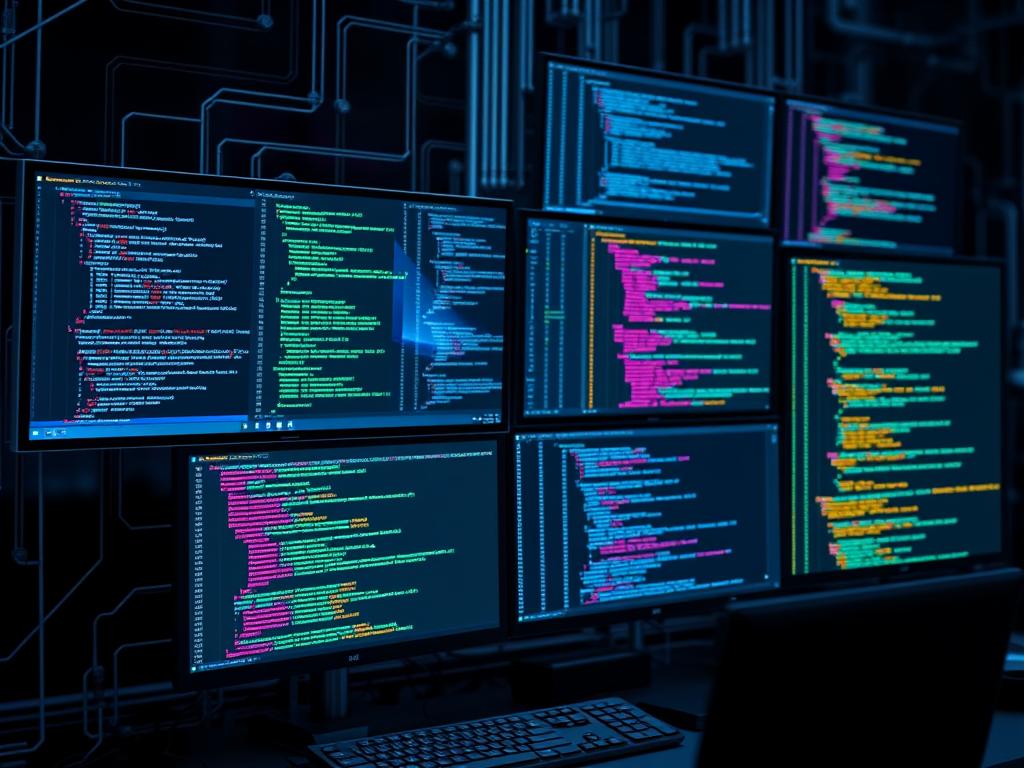
Software Development Revolution
Cursor, developed by startup Anysphere, has transformed the software development landscape. Beyond code completion, it now generates entire features and applications based on natural language requests. Developers describe what they want to build, and Cursor plans the architecture, writes the code, tests functionality, and even documents the results—compressing weeks of development work into hours while maintaining high code quality.
Enterprise Workflow Automation
Microsoft’s Copilot agents—Researcher and Analyst—are revolutionizing knowledge work within organizations. Researcher autonomously generates comprehensive reports by combining web research with internal company data, while Analyst transforms raw datasets into actionable insights using advanced reasoning. These agents operate within familiar Microsoft 365 environments, making sophisticated AI capabilities accessible to non-technical business users while maintaining security and compliance.

These examples represent just the beginning of how AI agents are transforming industries in 2025. As adoption accelerates, we’re seeing the emergence of specialized agents tailored to specific domains, from healthcare diagnostics to supply chain optimization and financial analysis.
Navigating the Challenges of AI Agents in 2025
Benefits
- Dramatic productivity improvements across knowledge work
- 24/7 operation without fatigue or performance degradation
- Consistent quality and compliance with defined standards
- Ability to scale operations without proportional staffing
- Freeing human workers for higher-value creative tasks
Challenges
- Potential job displacement in certain roles and sectors
- Security and privacy concerns with autonomous system access
- Reliability and error handling in complex scenarios
- Ethical questions about decision-making authority
- Regulatory frameworks struggling to keep pace
Organizations implementing AI agents in 2025 are developing governance frameworks that balance autonomy with oversight. This includes clear permission structures, comprehensive logging of agent actions, regular audits, and human review of critical decisions. The most successful deployments maintain humans in supervisory roles while allowing agents to handle routine execution.
Ethical Considerations for AI Agents
As AI agents gain greater autonomy, organizations must address key ethical questions: What decisions should remain human-controlled? How do we ensure agents act in alignment with organizational values? What transparency do we owe to customers and employees about agent use? The answers to these questions are shaping responsible AI agent deployment in 2025.
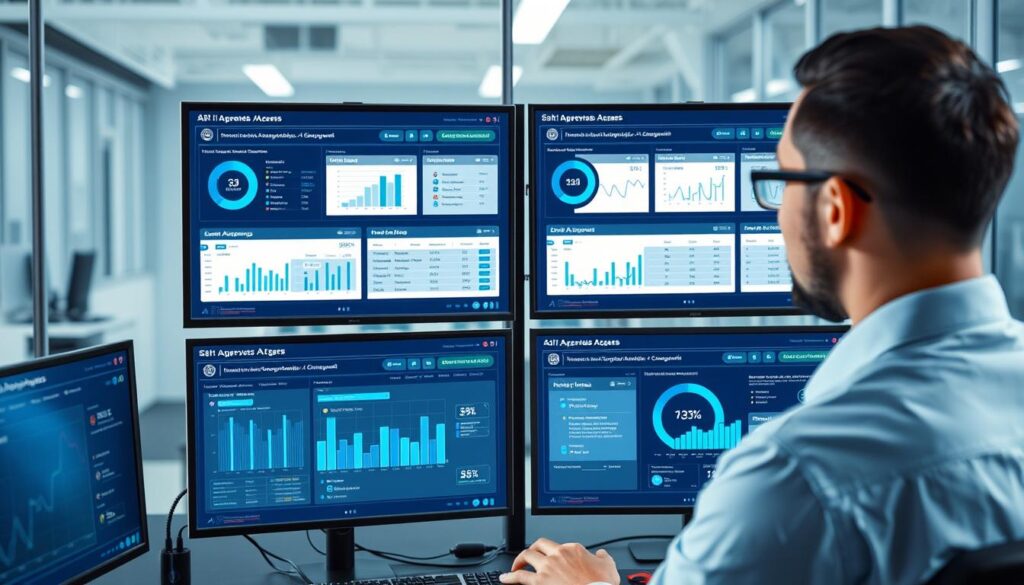
Looking Beyond 2025: The Future of AI Agents
While 2025 marks the mainstream emergence of AI agents in enterprise settings, several trends point to their continued evolution:
Consumer Adoption
As enterprise AI agent technology matures, we expect a wave of consumer-facing applications by 2026. Personal AI agents that can manage schedules, handle routine communications, and automate household management will bring this technology into everyday life.
Physical World Integration
The integration of AI agents with robotics and IoT systems will extend their impact beyond digital environments. Companies like Figure AI and Skild AI are already laying the groundwork for AI agents that can interact with and manipulate the physical world.
Specialized Expertise
Domain-specific AI agents with deep expertise in fields like medicine, engineering, and scientific research will augment human specialists, accelerating discovery and innovation while maintaining human oversight of critical decisions.
The trajectory is clear: AI is evolving from tools we use to entities that work alongside us and increasingly on our behalf. This transition represents one of the most significant shifts in how humans interact with technology since the advent of computing itself.
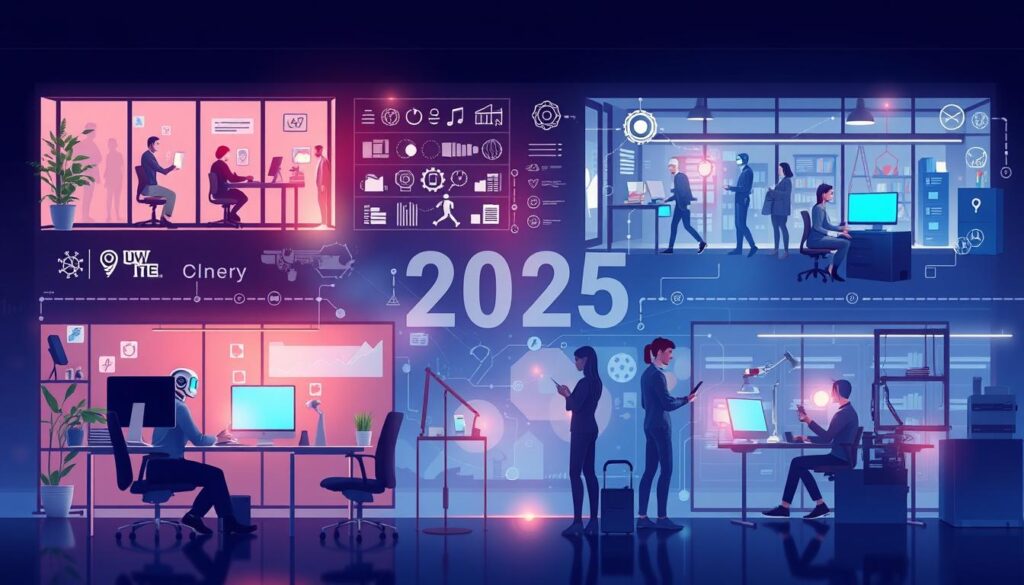
Conclusion: Embracing the Age of AI Agents
The rise of AI agents in 2025 represents a fundamental shift in our relationship with technology. We’re moving from an era where AI tools required constant human direction to one where AI agents can understand our intentions, develop plans to achieve them, and execute those plans with increasing autonomy and competence.
For organizations, this transition offers unprecedented opportunities to reimagine workflows, enhance productivity, and create new value. For individuals, it promises to eliminate routine digital busywork and expand human capabilities. The challenge—and opportunity—lies in thoughtfully integrating these powerful new entities into our work and lives in ways that amplify human potential rather than diminish it.
As we navigate this pivotal moment in technological evolution, one thing is clear: AI agents are no longer a futuristic concept—they’re here, they’re rapidly improving, and they’re already changing how we work and live in 2025.
Stay Ahead of the AI Agent Revolution
Get exclusive insights, case studies, and expert analysis on how AI agents are transforming industries and creating new opportunities. Join our community of forward-thinking professionals navigating the future of AI.
Frequently Asked Questions About AI Agents in 2025
How do AI agents differ from traditional AI assistants?
AI agents go beyond responding to queries or generating content—they can plan, reason, and execute complex tasks autonomously across digital environments. While traditional AI assistants like early chatbots primarily provide information or perform simple actions on command, AI agents in 2025 can initiate actions, make decisions, and complete entire workflows with minimal human oversight.
Will AI agents replace human workers?
AI agents are more likely to transform jobs than eliminate them entirely. They excel at automating routine, predictable aspects of knowledge work, freeing humans to focus on creative thinking, relationship building, and strategic decision-making. Organizations seeing the most success with AI agents in 2025 are those that thoughtfully redesign workflows to combine human and AI capabilities rather than simply replacing humans with automation.
How can businesses start implementing AI agents?
Most organizations begin by identifying specific workflows with clear objectives and boundaries. Starting with well-defined processes allows for easier measurement of success and containment of risks. Many companies are using platforms like OpenAI’s Agents SDK, Google’s Agentspace, or Microsoft’s Copilot agents as entry points, gradually expanding agent capabilities as they build confidence and expertise.







